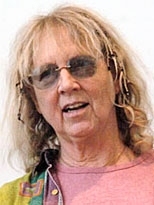Which businesses are most likely to further growth in developing nations: POES (privately owned national firms), FOES (foreign-owned enterprises) or SOES (state-owned enterprises)?
This was the question posed by Alice Amsden, the Barton L. Weller Professor of Political Economy, on Monday, March 5, during a talk titled "Nationalism and the Firm," part of the spring colloquia of the Program in Science, Technology and Society exploring "Big Questions."
The answer, as Amsden explained with a chart of the "12 apostles"--developing countries such as Argentina, Brazil, Chile, India and Thailand--was that POES trumped both FOES and SOES.
Conventional wisdom may assume that large, foreign-owned firms have access to capital, have well-trained managers and are more able to make "big jumps" in development and job creation, Amsden said. But actually, she said, large corporations are "very bureaucratic" and averse to risk. "They have to follow certain rules," she said. In Latin America, for example, multinational firms "sat like fat chickens" due to government protection.
By contrast, nationally owned, private firms are far more entrepreneurial and will leap on opportunities and new ideas.
"I'm a big fan of these big national firms; they are necessary in changing the old Western imperialism," she said. "These guys are a breathe of fresh air."
Thus, she believes it is better to encourage POES, which will in turn create local CEOs and business leaders. That doesn't means POES and FOES are always in conflict.
"There's enough for everybody," she said. The exception may be in areas like technology when "whoever gets there first crowds out the others."
What makes some developing nations do better than others is "pre-war manufacturing experience." Such countries knew how to start a project, she said, adding as she tapped her head, "Everything was up here."
Countries that had pre-modern manufacturing experience--such as China, India and Mexico ("These are countries with great art, great cuisine")--and those with an émigré population also have a developmental advantage. Another leg up came from "the hated influence" of colonialism, which created manufacturing infrastructure. "Decolonization was one of the most important movements of the 20th century," yet its full effects have yet to be fully explored, Amsden said.
Amsden's remarks sparked a heated discussion. Acknowledging it might be a "semantic quibble," Leo Marx, MIT emeritus professor of American cultural history, attacked Amsden's use of the word "nationalism," saying nationalism was a negative, destructive force in history and that it "continues to bedevil the world." Amsden said she would consider Marx's comments.
Other points debated included whether Thailand could be considered a "colony" (and thus had "nobody to kick out"), the role of Indian immigrants in Africa and the lessons of Bolivian nationalism. Wycliffe Muga, a Knight Science Journalism Fellow at MIT, questioned Amsden's suggestion that African oil-producing countries form a group like OPEC.
The STS "Big Questions" colloquia series continues through May; future topics range from the 1970s energy crisis to architectural technology to the notions of "culture" and "nature."
A version of this article appeared in MIT Tech Talk on March 14, 2007 (download PDF).






